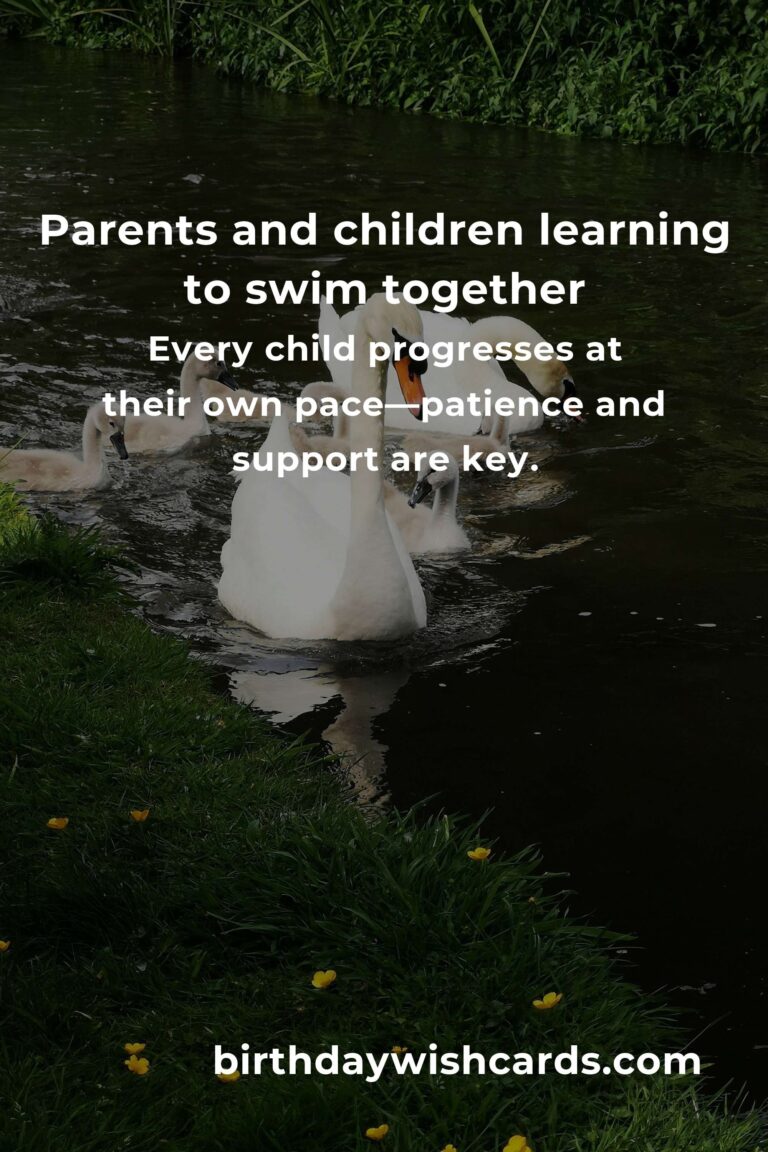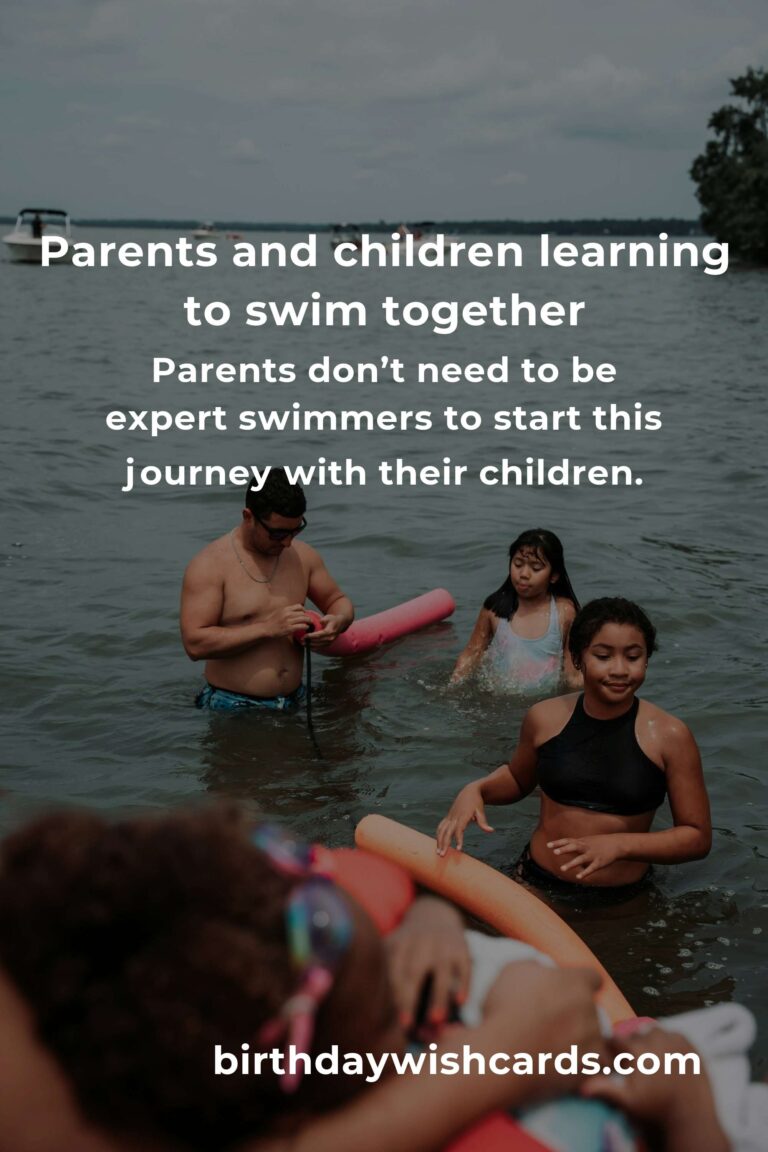
Swimming is more than just a valuable life skill—it’s a journey of trust, bonding, and joyful discovery for parents and children alike. Whether you’re introducing your little one to the water for the first time or seeking to overcome your own hesitations, taking the plunge together is a deeply rewarding experience. This comprehensive guide explores everything parents need to know about getting started, from safety and skills to emotional support and creating lifelong memories.
Why Swimming Matters: More Than Just a Sport
Swimming is often recommended as one of the most important skills a child should learn, and for good reason. It’s not only a fun, full-body workout but also a critical safety skill that can save lives. For parents, learning alongside your child fosters trust, confidence, and an unbreakable bond. The water becomes a place where both of you can grow, laugh, and discover new strengths together.
Understanding Your Own Relationship with Water
Before you guide your child, it’s important to reflect on your own experiences with swimming. Were you confident in water as a child, or do you feel trepidation? Your feelings can deeply influence your child’s attitude. If you have fears or limited experience, acknowledge them openly. It’s okay to learn together, and being vulnerable can teach your child courage and resilience.
Preparing for Your First Swim: Setting the Stage for Success
Preparation is key to a positive swimming experience. Here are some essential steps:
- Choose the Right Facility: Look for a clean, family-friendly pool with certified lifeguards, shallow areas, and warm water if possible.
- Get the Right Gear: Swimsuits, swim diapers for younger children, goggles, and towels are essentials. Consider flotation devices approved by safety authorities for beginners.
- Talk About It: Discuss what to expect at the pool. Use positive language and stories to build excitement.
- Plan for Comfort: Bring snacks, dry clothes, and favorite toys for after-swim comfort.
Safety First: The Non-Negotiables
Water safety is paramount. Here’s what every parent must know:
- Constant Supervision: Never take your eyes off your child, even for a moment.
- Stay Within Arm’s Reach: Especially with young children or beginners, always stay close.
- Learn CPR: Basic water rescue and CPR knowledge can save lives and provide peace of mind.
- Teach Respect for Water: Explain pool rules and why they matter. Make safety a habit, not a hassle.
- Set Boundaries: Establish clear rules about where your child can and cannot go.
Making It Fun: Turning Anxiety into Excitement
Children often mirror their parents’ emotions. If you’re nervous, they may be too. Here’s how to make swimming a joyful adventure:
- Start Slow: Let your child get used to water gradually—splashing at the edge, dipping toes, and playing simple games.
- Celebrate Small Wins: Every new achievement, no matter how small, deserves recognition.
- Bring Familiarity: Bring their favorite toy or float to the pool for comfort.
- Make it a Game: Play simple water games like “Simon Says,” or blow bubbles together.
- Stay Positive: Focus on fun, not performance. Laughter goes a long way!
Swimming Lessons: When and How to Start
Formal swim lessons are a valuable investment. The American Academy of Pediatrics recommends starting lessons as early as age 1. Here’s what to consider:
- Group vs. Private: Group classes build social skills, while private lessons offer personalized attention. Choose what fits your child’s temperament.
- Certified Instructors: Look for instructors with recognized certifications and a warm, encouraging approach.
- Parental Involvement: Many beginner classes welcome parents in the water. This builds trust and confidence for your child—and for you.
- Consistency: Regular attendance helps skills stick and reduces anxiety.
Helping Children Overcome Fear of Water
It’s normal for children (and adults) to feel nervous around water. Here’s how you can help:
- Empathize: Acknowledge their feelings. “It’s okay to feel scared, but I’m right here with you.”
- Model Confidence: Even if you’re anxious, show calmness and enthusiasm.
- Desensitize Gradually: Practice at home with bath time, pouring water over their head gently, and playing with water toys.
- Use Encouragement: Praise your child for trying, not just for succeeding.
- Never Force: Allow your child to set the pace. Forcing can create lasting fears.
The Emotional Journey: Building Trust and Connection
Swimming together offers a unique opportunity for trust-building. In the water, your child looks to you for comfort and security. By being present, patient, and encouraging, you foster deep emotional bonds and lasting memories. Every splash, every giggle, and every new skill learned together becomes a cherished part of your family’s story.
Health Benefits for Parents and Children
Swimming is a full-body exercise that benefits both body and mind. For children, it builds strength, coordination, and cardiovascular fitness. For parents, it’s a gentle, low-impact workout that relieves stress and enhances well-being. Sharing these benefits as a family encourages healthy habits for life.
Common Challenges and How to Overcome Them
- Scheduling: Busy families may struggle to find time. Treat swimming as a priority—put it on the calendar just like any other important activity.
- Cost: Look for community pools and subsidized lessons. Sometimes, local organizations offer scholarships or discounts.
- Fear of Judgment: Many parents worry about their own swimming abilities. Remember, your willingness to try is a powerful example for your child.
- Resistance from Your Child: Stay patient. Sometimes children need time to adjust. Keep the experience positive and pressure-free.
Creating Lasting Memories: Beyond the Pool
Swimming doesn’t have to be limited to the pool. Explore local beaches, lakes, or water parks as your child’s skills grow. Take family swims on vacation. Capture moments with photos and stories. These shared experiences become treasured memories that reinforce your bond and your child’s confidence.
Resources for Parents
- Local Swim Schools: Search for certified programs in your area.
- Online Tutorials: Many reputable organizations offer free videos to help parents and kids practice basic skills at home.
- Parent Support Groups: Connect with other parents to share tips, encouragement, and experiences.
- Books: Children’s stories about swimming can help ease anxieties and build excitement.
Conclusion: Dive In With Love
Swimming with your child is a journey that requires patience, courage, and a sense of fun. It’s not just about teaching a skill but about being present, building trust, and making memories that last a lifetime. Whether you’re a seasoned swimmer or a beginner, the most important lesson is to enjoy the journey together. So take a deep breath, hold your child’s hand, and dive in—the water’s fine!
Frequently Asked Questions (FAQs)
What age should my child start swimming lessons?
Experts recommend starting lessons around age 1, but it’s never too late to begin. Follow your child’s readiness and comfort.
What if my child is afraid of water?
Take it slow, be supportive, and never force them. Offer encouragement and model calmness. Over time, most children grow more comfortable.
Do I need to know how to swim before taking my child?
No, but consider taking beginner lessons yourself. Learning together can be empowering and set a positive example.
How often should we go swimming?
Consistency helps build confidence and skills. Aim for at least once a week, but even occasional visits are beneficial.
Are flotation devices safe?
Use only approved flotation devices and never rely on them as a substitute for supervision.
Final Thoughts
Every family’s swimming journey is unique. Embrace each moment with patience, love, and enthusiasm. Your commitment will not only keep your child safe but also open a world of joy, confidence, and connection. Happy swimming!
Swimming is a life-saving skill that also strengthens family bonds.
Parents don’t need to be expert swimmers to start this journey with their children.
Facing your own water anxieties teaches your child resilience and courage.
Preparation and safety are crucial for a positive swimming experience.
Emphasizing fun over performance helps children build confidence in the water.
Consistent lessons and gentle encouragement foster skill and trust.
Overcoming challenges together creates lasting family memories.
Swimming benefits the physical and emotional health of both parents and children.
Every child progresses at their own pace—patience and support are key.
The most important part is enjoying the experience together and building trust.
#SwimmingForParents #FamilyBonding #WaterSafety #LearnToSwim #ParentingJourney #HealthyFamilies #SwimLessons #OvercomingFears #MakingMemories #ChildhoodMilestones

